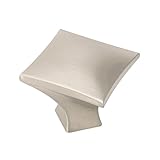All Categories
The Gatekeepers: Inside the Admissions Process of a Premier College
Share Tweet
*Price and Stocks may change without prior notice
*Packaging of actual item may differ from photo shown
- Electrical items MAY be 110 volts.
- 7 Day Return Policy
- All products are genuine and original








About The Gatekeepers: Inside The Admissions Process Of A
Product Description In the fall of 1999, New York Times education reporter Jacques Steinberg was given an unprecedented opportunity to observe the admissions process at prestigious Wesleyan University. Over the course of nearly a year, Steinberg accompanied admissions officer Ralph Figueroa on a tour to assess and recruit the most promising students in the country. The Gatekeepers follows a diverse group of prospective students as they compete for places in the nation's most elite colleges. The first book to reveal the college admission process in such behind-the-scenes detail, The Gatekeepers will be required reading for every parent of a high school-age child and for every student facing the arduous and anxious task of applying to college. "[ The Gatekeepers] provides the deep insight that is missing from the myriad how-to books on admissions that try to identify the formula for getting into the best colleges...I really didn't want the book to end." — The New York Times Review "Excellent... thoroughly engrossing drama." — BusinessWeek "[The Gatekeepers] provides the deep insight that is missing from the myriad how-to books on admissions that try to identify the formula for getting into the best colleges...I really didn't want the book to end." —The New York Times "Compelling...should be required reading for any student or parent who seeks insight into a process hidden 'behind a cordon of security befitting the selection of a pope'." —Newsweek About the Author Jacques Steinberg has been a staff reporter for The New York Times for more than ten years and currently is a national education correspondent. In 1998, he was awarded the grand prize of the Education Writers Association for his nine-part series on a third-grade classroom on Manhattan's Upper West Side. Excerpt. © Reprinted by permission. All rights reserved. One The Tortilla Test The lime-green Saturn raced along the winding roads of northern New Jersey, past trees strung with leaves that glowed tangerine, gold and maroon. But the driver was too preoccupied to notice the glorious foliage, his eyes continually darting to the passenger seat. There he had laid out travel directions printed from the Internet, along with a well-worn road atlas pocked with green asterisks spread across a half dozen states. Each designated a community that he had visited previously. On that bracing morning in early November of 1999, Ralph Figueroa was beginning his fifth year as an admissions officer at Wesleyan University, in Middletown, Connecticut, one of the nation's premier liberal arts colleges. But from the vantage point of a passing driver, Ralph was just another motorist wearing a gray wool suit, white starched shirt and deep red tie. He sat hunched over the wheel of a rental car that was too small to contain his body, which unfolded to more than six feet and weighed well over two hundred pounds. With his thick, blown-back black hair, which he had neatly arranged at a Courtyard by Marriott just after daybreak, Ralph looked like someone on his way to sell a $350 vacuum cleaner, rather than the product of a $35,000-a-year education that came with the unwritten guarantee of a happy and meaningful life. At ten-thirty, a few minutes early as usual, Ralph pulled up in front of Northern Valley Regional High School in Demarest, a boxy, tan-brick public school that looked nothing like the private Tudor-style academy that he had left a half hour before. This was his second sales call of the day, and one of four visits that he had scheduled within a fifty-mile radius. He had allotted just six hours for the day's work, so he would have to speak quickly. As he moved purposefully past green-tiled walls and gray lockers on the way to the guidance office, he fumbled to pin on a plastic badge embossed with his name and that of Wesleyan in big letters. The popular image of university admissions officers is not unlike that of Hollywood studio executives. Both are assumed to spend most d




 (7)
(7)






















